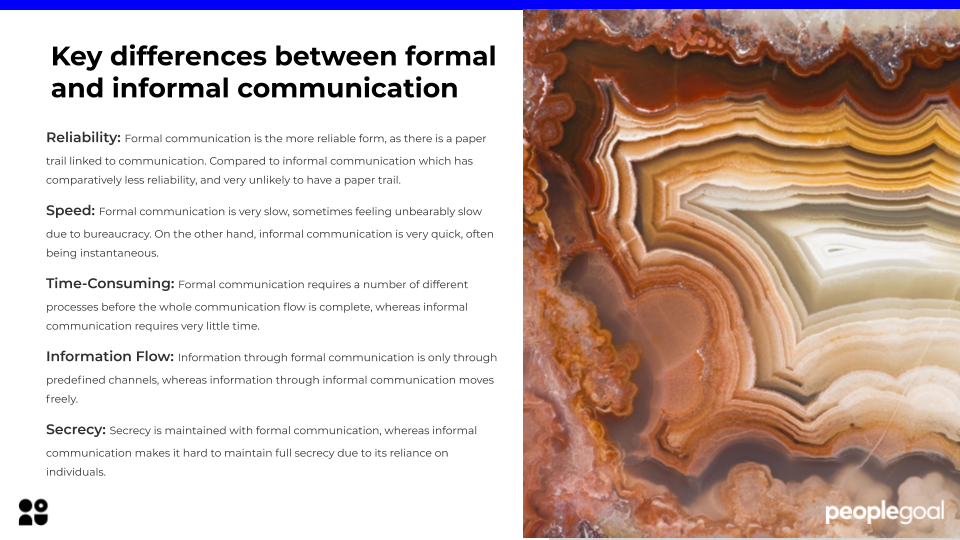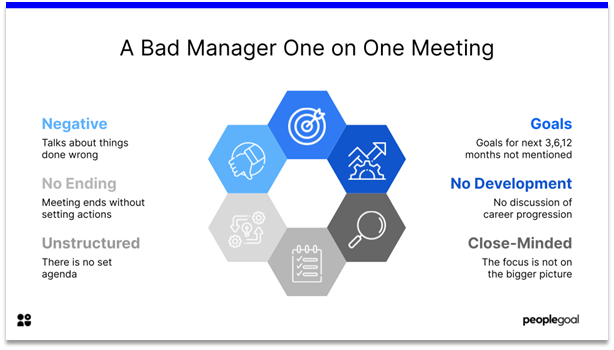In these years of instant messaging and being able to receive emails on everything from a watch to a fridge, you’d hope communication would be more accessible. Of course, this complicates the jobs of HR managers, as if the job isn’t hard enough! So how can you improve internal communication in your team? Included below are some tricks and tips to help get those employees out of their shells and talking when you need them to.
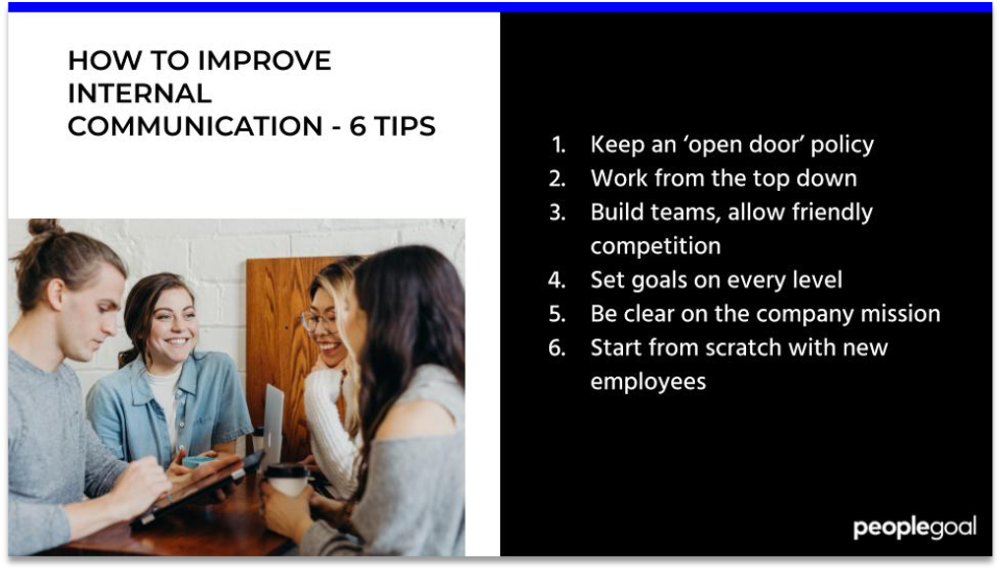
1. Keep an ‘open door’ policy
Let your company’s employees know that you’re there to listen! It may sound simple, but making it clear that you’re willing to hear everyone out is a quick way to get them to talk. Whether it’s changes they think could help with productivity, or nerves about the job that you can help settle down, they have to know you’re there to listen.
If it helps, the tried and true suggestion box could work, in the form of an anonymous email or a literal box in a common area. Make sure that they have an outlet, even if they’re not yet comfortable enough to talk to you in person.
When employees give you their ideas, remember to take them seriously. Sometimes the best new ideas, like finding a new mass payment system, or allowing sick-day employees to work from home, will be found in a suggestion box. The company has to open itself up to those ideas. Above all, by showing you’re taking their notes, they’ll be more open to communicating with you in the future.
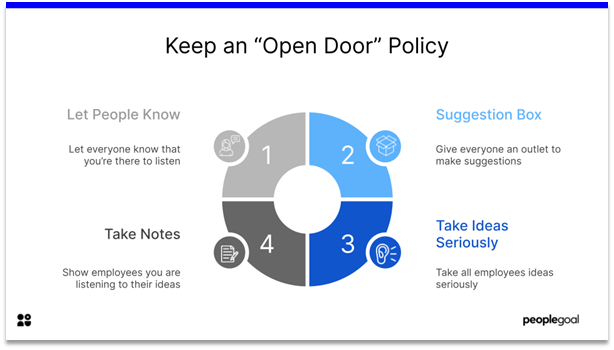
2. Work from the top down
Employees can be worried about saying anything if they feel like they’ll get quieted down regardless. Work with managers and supervisors to teach them how to be open to employees bringing up concerns, and how to improve internal communication in their own team.
Tell them if they’re not comfortable, to be nonjudgemental, and send the employees your way. Ask that nobody mocks or shames employees for their opinions or ideas. If an employee feels listened to, they’re more likely to be open to change and criticism of them as well.
Make it clear this isn’t optional, and that it’s now standard for the company that people are allowed to request help, or offer ideas (within reason).
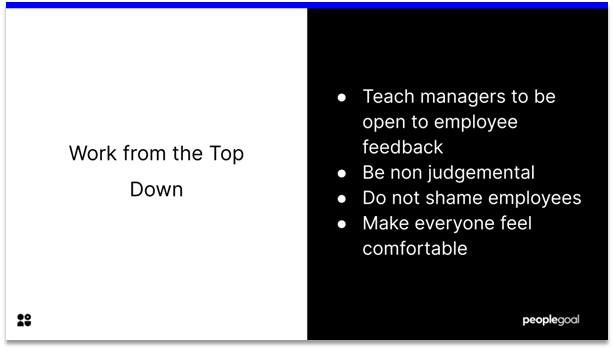
3. Build teams, allow friendly competition
An easy way to get employees to get more comfortable with communication is to allow some healthy competition. Nothing too dire, or intense; consider some team-based games. Whether it’s which team gets their numbers up highest- or a real game like corn-hole- get them excited and competitive.
Working together towards a more tangible and shared goal, rather than just for the company itself, can make them more comfortable.
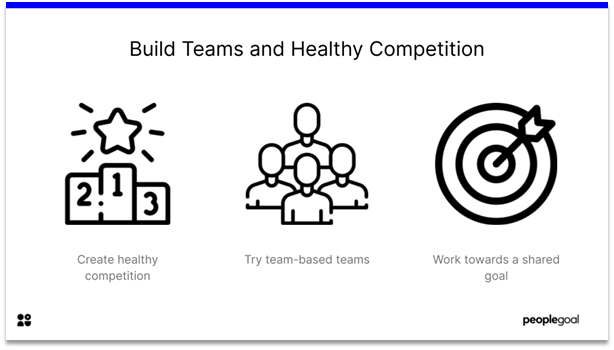
4. Set goals on every level
Another great way to get people to start communicating is to set goals within the company. Regardless of what type of company you’re in, there are endless metrics to measure success. Let employees and teams set their own goals for what they want to see. Whether it’s higher production or reaching more bonuses, be sure it’s reachable to some degree. Managers and supervisors can help set goals for themselves and their teams as well. Employees will talk more with their supervisors because it’ll help them make their goals more manageable.
It all comes back to the team mindset. Make sure they know that the business is one unit with dozens of pieces that have to work together.
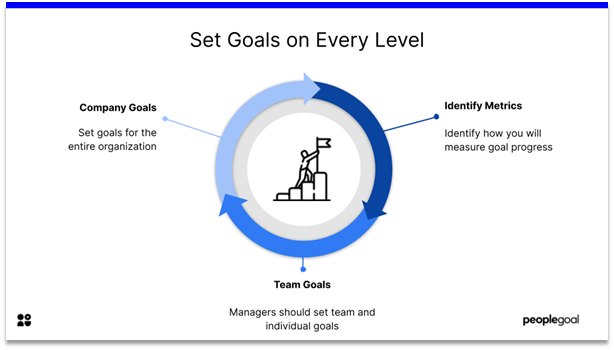
5. Be clear on the mission of the whole company
What’s the company’s mission statement? Not only should it inspire growth, it will let your employees know exactly what the company expects of them. Communication is always a winding two-way street. By emphasizing a collective goal, you’ll give employees a vision of what they’re bringing to the team.
If the company doesn’t have a published mission statement, which often happens in new or small companies, consider working with employes to create one. Let them be a part of defining what it means to be a part of the company.
If you want, you could use it as a team-building contest and let employees enter for what they think it should be. This act, however small, shows that you have faith in how they view the company.
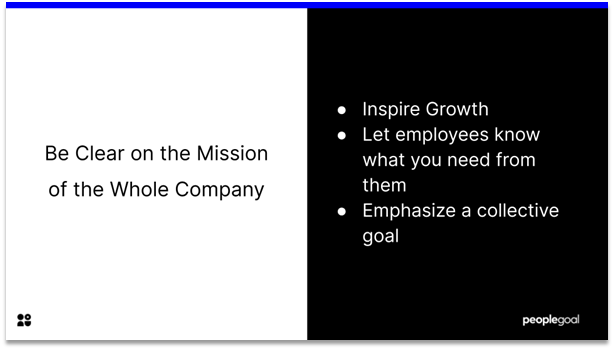
6. Start from scratch with new employees
Taking all of these steps and moving forward with current employees can be a lot of work. The next and most essential step is to make sure you’re training new employees on these policies as you hire them. Not only will it save you from extra work down the road, it will also make sure a precedent is known and set for all employees. Communication helps a company grow stronger. In return for the work you’re putting in, employees will become more satisfied with their jobs. Multiple studies show that a happy employee is a hard-working employee, so give them a chance to prove themselves.
In the end, the number one tip to improve internal communication is to listen. Whether it’s a workplace miscommunication that’s turned into an argument, or someone requesting a new snack machine – everything has to be heard and taken into account. As an HR manager, you’re the acting mother duck to dozens (or hundreds!) of people who need some guidance. Help them see that your company is the one they should stick with, and the inevitable return will be overwhelmingly positive.
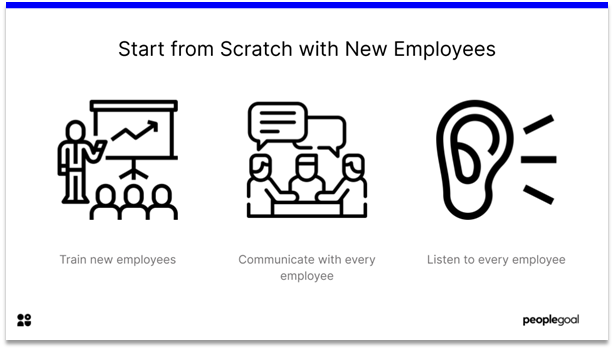
Ready to 3x Your Teams' Performance?
Use the best performance management software to align goals, track progress, and boost employee engagement.

